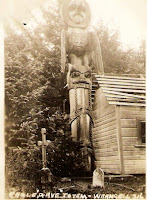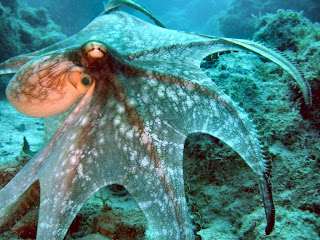Planet Alaska: Sharing Our Stories
Planet Alaska began as a desire to share and celebrate the diversity of Alaska from Ketchikan to Utqiagvik. Planet Alaska is two writers/artists, a mother/daughter team, who’ve been co-hosting Planet Alaska on Facebook, Instagram, Blogger, and Twitter for five plus years. We have more than 14,000 followers from around the world now, but it began like many Facebook pages do, with our friends and family. Planet Alaska is dedicated to our mentor and teacher Angayuqaq Oscar Kawagley. After Dr. Kawagley died (in 2011), and the opportunity arose to host a Facebook page, we wanted to continue his legacy of storytelling, scholarly work, and encouraging others.
Taking our popular Facebook page to the Capital City Weekly is a bit unnerving, though. We’ve been somewhat autonomous. Often people assume we’re a part of the National Geographic news network. We’re not, but that’s a nice compliment.
Here’s a bit more about your Planet Alaska columnists:
Vivian Mork Yéilk’
I was born in Wrangell, Alaska and live on my boat in Sitka. I’m Tlingit, a Raven from the T’akdeintaan clan, Snail House from Hoonah. My Tlingit name is Yéilk’ (Cute-Little-Raven). I come from a large multi-cultural family, which is also Sámi, Hawaiian, Chinese, and Irish. I have an M.A. in Cross Cultural Studies with an emphasis in Indigenous Knowledge Systems. I’m a tourist guide, a traditional food and medicine specialist, a storyteller, a writer, a carver, a tinkerer, as well as a Tlingit language and cultural educator. I grew up exploring Southeast Alaska’s islands in a commercial fishing family, spent my young adult life as a professional vagrant exploring the world, and I now spend a lot of time moving stuff around on my boat in Sitka.
Planet Alaska is about diversity: nature, cultures, families, landscapes, art, writing, and more. It is the story of us — what makes us Alaskans. It’s about you, Dear Reader, Dear Alaskan, Dear Fellow Traveler and Human. Thinking about this big step into newsprint makes us consider the mentors we’ve had along the way. What does it mean to be a mentor and what does it mean to take on the role of student? Sometimes we’ve been offered a reciprocal mentor/apprentice relationship and other times we’ve had to seek it out. Who has inspired us – given us hope to continue despite challenges?
Between us, we have mentors in common, some who’ve walked into the forest recently. Teri Rofkar and Clarissa Rizal were two of these mentors, though they were also our beloved clan sisters who influenced our creativity. Teri Rofkar advised us to tell contemporary stories, which is what we do at Planet Alaska. In her art, we see the mega-tsunami that tossed our uncle’s fishing boat over an island in Lituya Bay, the fault lines cracking the surface of a dance robe. Clarissa encouraged us to be mentors ourselves; to take a daughter, or cousin, or friend, and show them how to make devil’s club salve or harvest spruce tips.
Nora and Richard Dauenhauer mentored us in literature and the Tlingit language. Dick and Nora taught us to look for metaphor embedded in the language and to not be afraid to learn and speak Tlingit. They gave us both the gift of language and understanding that opened a whole new world for us. We’ve tried to share our love of language on our Planet Alaska page and share what other Alaskans are doing within their language revitalization efforts.
As well, Marie Olson, Kaayistaan,a Juneau resident, is one of our dear mentors. Marie has mentored us through our graduate programs and beyond. We went to the World Indigenous Peoples Conference on Education in New Zealand together. She taught us Cultural and Intellectual Property Rights. Marie has lived some incredible stories and is a brilliant scholar. Says Yéilk’: “I am so thankful to call this woman my friend. This is the woman who tells me I remind her of Russell Means. This is the woman who calls me to tell me she was thinking of me and that I should start a media company telling our stories. This is the woman who calls me to simply say let’s go to dinner.”
What our mentors have in common is that they saw possibilities; they took risks and faced their challenges — and in doing so, they inspired others. Dear Reader, think about how you could mentor someone in the coming year or consider being the student. Learn something you’ve always wanted to know. Don’t wait. Go knock on that door, send a text, a card, or pick up the phone. Nora Dauenhauer Keixwnéi said, “The things you want to do in your life, get it done now.” So here we are: Welcome to Planet Alaska.
(First appeared in the Capital City Weekly, Juneau Empire, Dec. 27 2017)









Comments